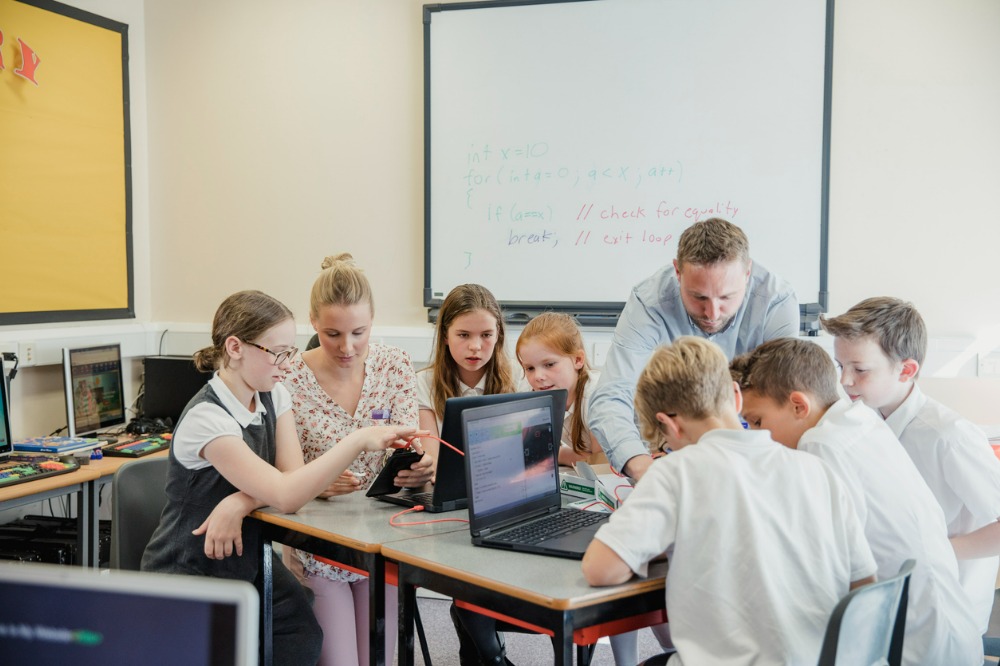
Each year, the Australian edtech sector generates a staggering $3.6bn in revenue – a figure that looks set to grow amid the explosion in new AI-driven tools across the nation’s education landscape.
At the same time, learning outcomes for Australian students are stagnant and equity gaps continue to grow.
In July last year, a report by UNESCO warned that countries need to take immediate action to ensure technology never replaces in-person, teacher-led instruction, and called for a special unit to “evaluate the appropriateness, relevance and full cost of education technology applications”.
A separate report just released by the Chair of the Australian Network for Quality Digital Education, is urging policymakers to urgently build a national quality assurance process for the use of edtech in Australian schools.
Authored by Network Chair Professor Leslie Loble AM and Director of Edtech and Education Policy Dr Kelly Stephens, the paper advocates for criteria that, “at minimum, ensure edtech is backed by evidence and provides support for quality teacher use, is true to the curriculum, is inclusive of all students, and ensures safe and ethical use of data.”
“Teachers and parents are overwhelmed for choice from a booming edtech market, with 500,000 learning apps available online and more marketed directly to schools, but there’s no independent, comprehensive source of information about the quality of these resources in Australia,” Professor Loble said.
“Edtech decision makers currently select and implement technologies with far too little information about what is likely to work in their schools. We are consequently spending untold amounts of money – in schools, and at home – on edtech that may be overused, underused, or ineffectively used. We know for certain it is inequitably used.”
Professor Loble said the lack of clearly articulated quality expectations creates a significant risk that students and schools may fail to benefit from the increased use of edtech.
“Additionally, we still lack system-wide regulatory standards and controls to prevent the tracking and scraping of children’s data from edtech platforms,” she said, adding that Australia is falling behind other jurisdictions in implementing quality assurance processes in response to the growing reliance on edtech.
“Ensuring that Australian students are using the best evidence-backed digital resources, with strong safety and quality criteria in place, should be a priority for policymakers.”
Sarah Davies AM – CEO of the Alannah and Madeline Foundation and advocate for children’s rights online, said children's data privacy and security must be the foundation of all quality edtech and cannot be left to individuals to assure.
“We know that the most vulnerable children in our community are also the most vulnerable online.”
Danny Pikler, CEO and Co-founder of Stile, an online Science curriculum platform, said while the timing is ripe for Australia to take a stand on quality, the window is narrow.
“Cards played one way and Australia becomes an OECD leader in high quality instructional materials, in turn improving nationwide student outcomes and boosting teacher wellbeing,” Pikler said.
“Cards played another, and Australian companies start investing into overseas markets where quality is defined, valued and funded.”
John Bush, Head of Young People at the Paul Ramsay Foundation, said many Australian children who experience disadvantage are excluded in the digital world, too.
“Right now, there’s a real opportunity for AI-based edtech to be a bridge to greater digital inclusion but also a real risk that AI will exacerbate a digital divide,” Bush said.
“To seize the opportunity, it’s crucial that we have quality assurance system that embeds digital inclusion in the design and use of AI-based edtech.”


